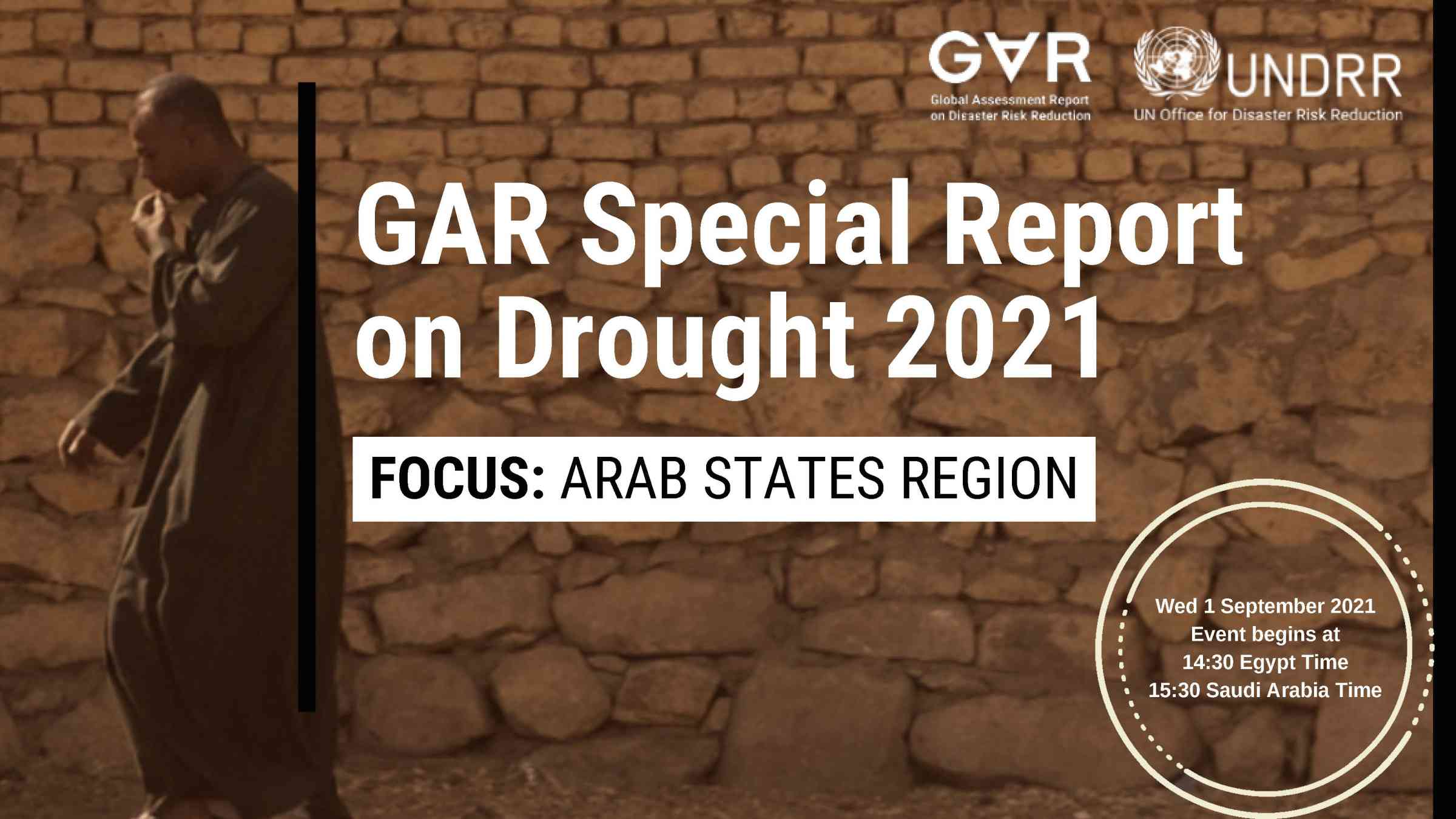UNDRR Launches the Arab States Drought Risk Dialogue: Managing Drought Risk in a Changing Climate

1 September 2021 – The United Nations Office for Disaster Risk Reduction, Regional Office for Arab States launched the “Arab States Drought Risk Dialogue” in a webinar titled “Managing Drought Risk in a Changing Climate” which unpacked the latest findings on drought risk management from the Arab States Region as featured in the Global Assessment Report, Special Report on Drought 2021 (GAR SRD 2021).
The webinar brought together the leading and contributing authors of the GAR SRD 2021 and illustrated the challenges facing transboundary cooperation around water basins in a changing climate in the region, and the urgent need for new transboundary risk governance approaches to reduce drought risk with two case studies from the region (1) the Mediterranean Basin and a 10-step drought mitigation approach, in the context of competing water needs for agriculture, energy and urban water supplies and (2) the diverse drought impacts in the Blue Nile region, affecting Sudan, Ethiopia, and Egypt, calling for urgent strengthening institutional mechanisms for collaboration, data collection, monitoring, and data sharing.
“GAR2021 calls for immediate action to reduce drought risks by focusing on prevention and by thinking ahead. Acting in advance of drought has far lower costs than reacting and responding to the impacts once drought hits,” said Sujit Mohanty, Chief of the UNDRR Regional Office for the Arab States.
In his keynote speech, Dr. Wadid Erian, Professor at Cairo University and GAR SRD 2021 lead author, highlighted the deep, widespread, and underestimated impacts of drought on societies, ecosystems, and economies. “There is a need to develop a national drought resilience partnership that works to ensure a seamless link between national and local levels with public, private, and civil society partners and a need to support the establishment of a global mechanism for drought management focused on systemic risks,” he added.
The contributing authors Dr. Hesham El-Askary, Chapman University, and Dr. Khaled AbuZeid, Centre for Environment & Development for the Arab Region & Europe (CEDARE), presented the two case studies from the Arab region: the Mediterranean Basin and the Nile Basin respectively.
“The situation in the Arab region is made more complex due to the competition on the water among agriculture, energy, and urban water supplies, with prioritization granted to the urban water supply.” El-Askary highlighted.
AbuZeid tackled the critical impact of droughts, climate variability, and climate change in the case of the Blue Nile. “Constructing dams and hydraulic structures upstream the Blue Nile can have detrimental effects downstream,” he added.
In the Arab States Region, drought risk is increasing, related to increased exposure and vulnerability through population growth, pollution, conflict, and insecurity, maladaptive practices like unsustainable use of water resources, and unsustainable development approaches.
There are many drivers of drought that are all interconnected, depletion of ecosystems combined with climate change have increased the severity of droughts and water scarcity.
The webinar called to shift from reactive approaches to getting ahead of the curve by addressing the root drivers of drought which is affecting millions of people and contributing to food insecurity, poverty, and inequality.
GAR 2021 explores the systemic nature of drought and its impacts on the achievement of the Sendai Framework for Disaster Risk Reduction, the Sustainable Development Goals, and human and ecosystems health and wellbeing, and calls for immediate action to reduce drought risks by focusing on prevention and by thinking ahead.